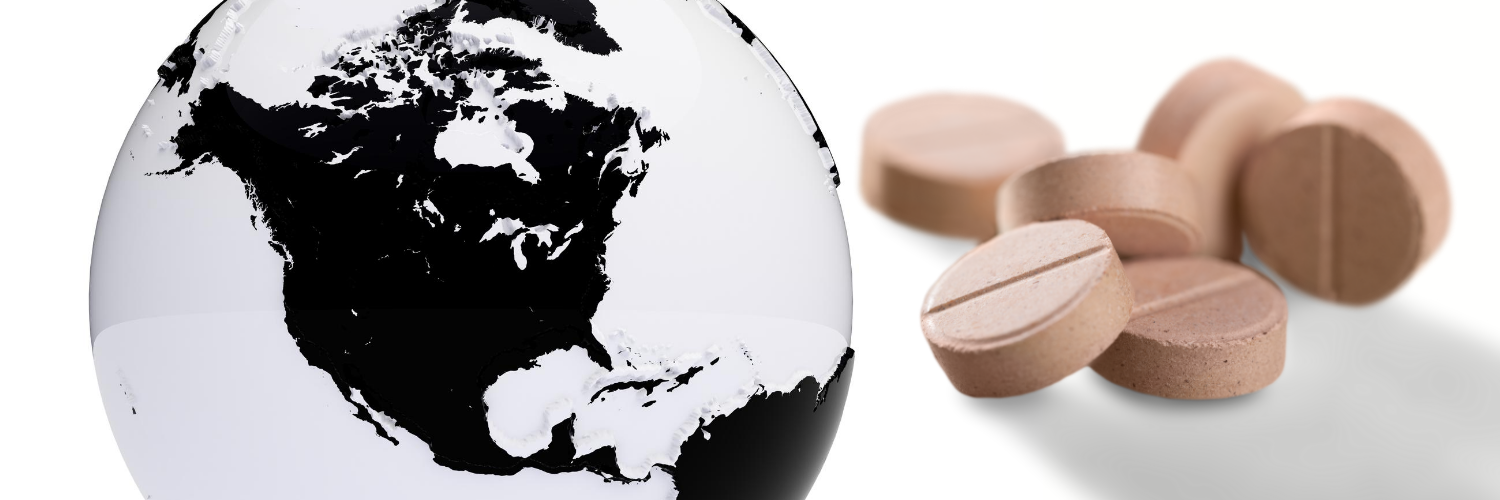Which antihistamines don't cause drowsiness? How do antihistamines work?

Springtime is almost upon us! For some, it's their favorite season; for others (myself included), the fear of miserable allergy symptoms starts to settle in. There is nothing pleasing about the annual drama of itching, sneezing, watery red eyes, runny noses and congestion. Some may be fortunate enough to never experience springtime pollen allergies, but still need help controlling allergic reactions throughout the year, such as with dust mites or mold. Luckily, there are several over-the-counter (OTC) medications called antihistamines like Claritin (loratadine) and Zyrtec (cetirizine) that are effective in helping manage these dreadful allergy symptoms.
How do antihistamines work?
When we experience an allergic reaction, for example after inhaling pollen, our eyes may get itchy, watery, swollen and bloodshot. Our body’s Department of Defense (aka the immune system) responds by releasing histamine to combat the allergens. This release is what causes our allergy symptoms (itching, sneezing, and runny noses). What saves us from histamines? Antihistamines! How the medication works is in the name itself: they block histamine from binding to receptors in your body, which helps prevent allergic reactions.
Pharmacist TIP: For the best blocking effect, I recommend taking antihistamines as a preventative measure: for example, before you go outside in the springtime rather than after you start to experience symptoms. This method allows antihistamines to build up in your system and get you ready for some histamine blocking action!
Which antihistamines cause drowsiness?
First generation antihistamines, ones developed over 60 years ago, are the culprits when it comes to making us feel drowsy. Drowsiness is a common side effect of these antihistamines because they cross our brain’s STOP sign (aka the blood-brain barrier). Well-known OTC antihistamines Benadryl (diphenhydramine) and Chlor-Trimeton (chlorpheniramine) cause drowsiness. When histamine is blocked, the function of sleep regulation and keeping us awake is also blocked resulting in us feeling drowsy after taking a Benadryl.
The side effect of drowsiness can be convenient if you are trying to fall asleep and manage your allergies at the same time. However, I do not recommend using Benadryl as an OTC option for long-term sleep management because while the histamine is blocked, acetylcholine is also blocked. Acetylcholine ensures you get enough deep sleep, so when it is blocked you may feel more tired or groggy than usual the next day. Talk to your doctor or other medical provider before using antihistamines for sleeping problems.
No, a “non-drowsy Benadryl” does not exist.
Read If You are 65+ and Take Antihistamines
First generation antihistamines, like Benadryl (diphenhydramine) and Chlor-Trimeton (Chlorpheniramine), should be used cautiously by older folks because they can increase your risk of falling or having urination difficulty.
-
Increased risk of falls due to the side effects of these antihistamines which may cause drowsiness, dizziness, and sedative effects.
-
Urination difficulty because these antihistamines dry up the body, which results in an overall fluid decrease that can lead to less urination. If you have had incontinence or urinary tract issues in the past, please consult your health care provider before taking a 1st generation antihistamine.
The American Geriatric Society also maintains a list of medications called the Beers Criteria that may be inappropriate to use with the elderly population (available here).
Which antihistamines don't cause drowsiness?
Not all antihistamines make you drowsy.
There are newer, second generation antihistamines that don’t cross the blood-brain barrier to the extent of the first generation drugs. That results in little to no drowsiness experienced with these antihistamines. All first and second generation antihistamines are effective at treating allergy symptoms so you will have to see which antihistamine works best for you out of the following options:
- Clarinex (desloratadine)
- Claritin (loratadine)
- Zyrtec (cetirizine)
- Xyzal (levocetirizine)
- Allegra (fexofenadine)
Pharmacist Tip: I usually recommend trying to switch to a different 2nd generation antihistamine every allergy season so your body does not develop a tolerance to one specific type; however, everyone is different and one specific brand may work better than others.
How long does it take for my allergy medication to work?
Remember: it's best to take your allergy medication before you expect to be in an environment that contains your allergens. Most allergy medications take effect in your body after an hour.
| Onset Time of Allergy Medications | |
| Benadryl (diphenhydramine) | 15 - 30 minutes |
| Chlor-Trimeton (Chlorpheniramine) | 30 - 60 minutes |
| Clarinex (desloratadine) | 1 hour |
| Claritin (loratadine) | 1 - 3 hours |
| Zyrtec (cetirizine) | 1 - 2 hours |
| Xyzal (levocetirizine) | 1 hour |
| Allegra (fexofenadine) | 1 - 3 hours |
Is coffee an antihistamine? Does coffee cause histamines to be released in the body?
Coffee is not an antihistamine, but it might do the opposite. While research on this topic is slim, there was a study that showed a significant increase in histamine levels 30 minutes after caffeine (the active ingredient in coffee that gives us that morning jolt) was administered. Now most people don't have to worry about any allergic reactions associated with coffee. However if you have a histamine intolerance, it could be helpful to be mindful of your caffeine intake.
How to Save Money on Antihistamine Medication
You can save money at your local pharmacy on antihistamine medication using the U.S. Prescription Discount Card. Remember: if you use the discount card, you will need to get a prescription for your antihistamine medication before heading to the pharmacy.
| Brand Antihistamine Medication Price Comparison | |||||
| Medication Name | Quantity | Average retail price (GoodRx) | PC Discount Card Price (in the 10605 ZIP Code) | Lowest International Online Pharmacy Price | Greatest Savings % |
| Benadryl (diphenhydramine) 25mg | 90 capsules | $22 | $17.79 | $25.53 | 19% |
| Chlor-Trimeton (chlorpheniramine) | 90 tablets | - | $18.25 | - | - |
| Clarinex (desloratadine) 5mg | 90 tablets | $768.74 | $655.50 | $34.20 | 96% |
| Claritin (loratadine) 10mg | 90 tablets | $82.67 | $63.56 | $96.05 | 23% |
| Zyrtec (cetirizine) 10mg | 90 tablets | $63.23 | $52.59 | $40 | 38% |
| Xyzal (levocetirizine) 5mg | 90 tablets | $351.36 | $34.07 | $50.99 | 90% |
| Allegra (fexofenadine) 180mg | 90 tablets | $62.03 | $40.13 | $43.39 | 35% |
Learn more about OTC medication prices and online pharmacy safety
Why are drug prices so different at different pharmacies?
Why are brand-name drugs so expensive?
How can patients reduce prescription drug costs at the pharmacy counter?
Do you have questions or concerns about safely accessing medication, whether locally or online? We’re here to help.
Comment below or ask a question by logging in to My PharmacyChecker.




